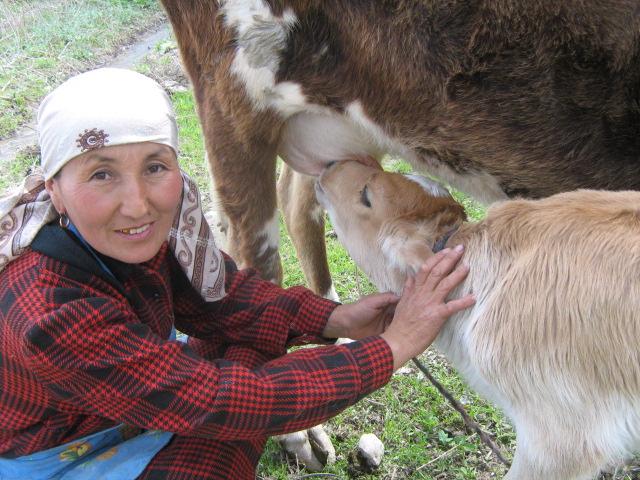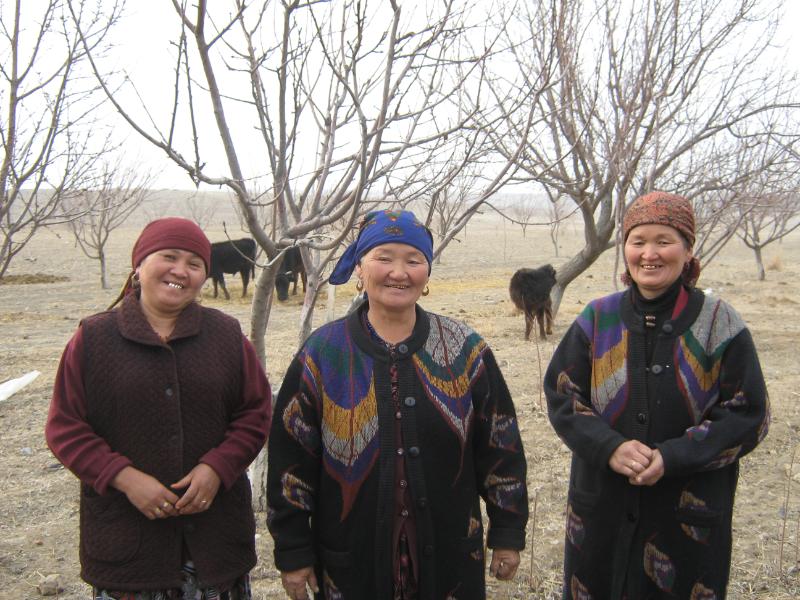This was no easy feat. It's expensive to serve the poor, with costly outreach into remote regions, higher default risk, and much lower profit yields. And yet, Bai Tushum has gone above and beyond to financially back its philosophical commitment to the welfare of poor clients, their employees, and the broader community.

Buuzara, the Kiva borrower pictured, started her business with 5,000 KGS (about USD$106). With her perseverance and hard work, it now yields an 8,000 KGS profit every month. Today, she's looking for a loan of 60,000 KGS (about USD$1,270) through Bai Tushum to expand her herd.

Bai Tushum's individually-tailored loan terms enable even the poorest clients to start their own businesses and opt out of a job market too often based on bribes and connections. The MFI prioritizes these types of loans even though it's more expensive to develop and administer them than the one-size-fits-all variety.
Bai Tushum also offers declining balance interest rates on its loans. This means that the amount of interest clients pay is based on the amount of the loan that is still outstanding when interest is due. This way, clients are able to make lower interest payments as more of the loan is paid off. Most MFIs require clients to pay a flat interest rate over the course of a loan, which ultimately costs the client more. Bai Tushum's approach is less profitable, but it is willing to incur the cost to protect its most vulnerable clients from over-indebtedness.
Recognizing that its staff members are on the front lines of the battle against corruption, Bai Tushum invests in hiring ethical employees who are trained in a prescribed code of conduct, including an anti-corruption policy and pledge.
For similar reasons, the organization also emphasizes programs and products for women. Bai Tushum believes when women benefit, the whole community thrives and is less susceptible to corruption. Accordingly, it includes women in all of its decision-making processes. Consider these stats:
- 100% of Bai Tushum's top managers are women (compared to the 35% average in Central Asia).
- 50% of its loan officers are women (compared to the 35% average in Central Asia).
- 40% of its board members are women.
- 41% of its personnel are women.
- 44% of its clients are women.

The women of the Kalyskan Group (pictured above) have applied for a loan of 54,000 KGS (about USD$1,145) to purchase cattle and manure to fertilize their land. This will allow them to increase rice production and sales of milk and meat products. In the future, they plan to diversify even more.
Bai Tushum believes that creating jobs and stabilizing local economies suppresses tendencies toward corruption. This is reflected in its mission, its loan products, and its collaboration with the International Labour Organization (ILO), which promotes job-generating microfinance.
For these client-centric efforts and others, Kiva awarded Bai Tushum five Social Performance badges: Anti-Poverty Focus, Client Voice, Family and Community Empowerment, Entrepreneurial Support, and Innovation.
The Social Performance in Action blog series is designed to share stories from the field that demonstrate the amazing work our partners are doing to meet a range of client needs. Have questions? Send them our way at blog@kiva.org.